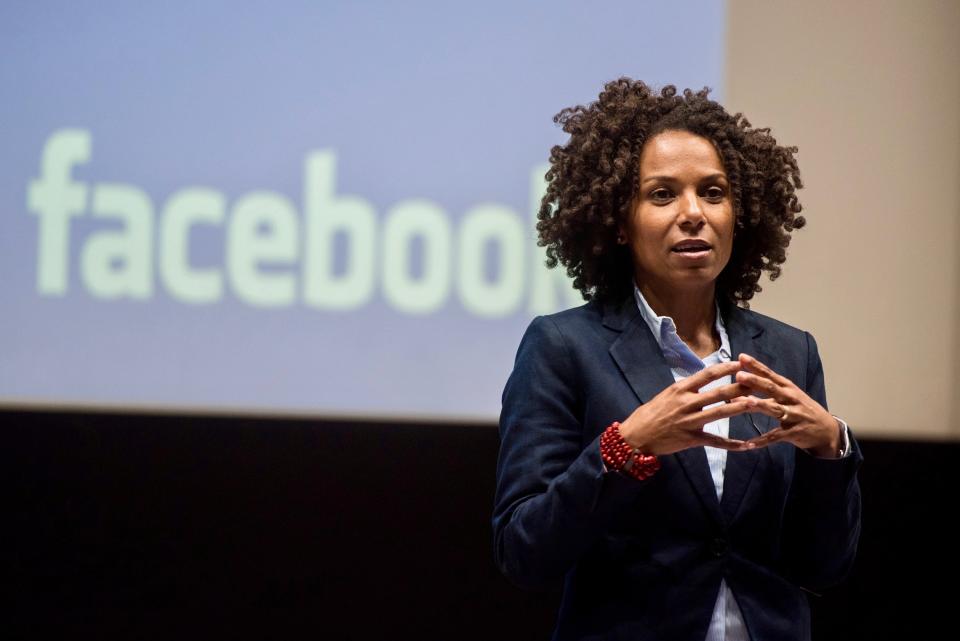Facebook diversity chief: ‘We are not in the business of giving away jobs’
Facebook Global Director of Diversity Maxine Williams is on a mission to make the social network a more inclusive place.
That’s not an easy task in Silicon Valley, an industry under fire for its relative lack of employee diversity. Many tech companies remain dominated by heterosexual white men, who earn thousands of dollars more per year than individuals from underrepresented groups, such as women, African Americans and the LGBTQ community. And just this week, a Google (GOOG, GOOGL) engineer circulated an internal memo around the company that criticized Google for its diversity efforts. Google ultimately fired the engineer, but the ensuing controversy was a stark reminder that tech companies have a long way to go to make their workplaces more inclusive.
Williams is acutely aware of the challenge at Facebook (FB), where progress so far has been promising, if slow. According to a diversity data report recently released by the social network, women now represent 35% of Facebook’s total workforce — up from 33% the year before — while representation for both Hispanic and African American employees increased just 1% year-over-year.

Williams has been trying to improve these numbers. Since joining the social network in September 2013, the Yale and Oxford-educated Trinidadian has introduced a slew of initiatives aimed at improving Facebook’s hiring and retention practices, particularly among underrepresented groups. In 2013, the company launched Facebook University, a two-month program aimed at training college freshmen from underrepresented communities in areas such as engineering and analytics. Some of the program’s 500-plus graduates have since gone on to intern or even work full-time at Facebook.
In 2015, the social network also rolled out the Diverse Slate Approach for hiring. The strategy, which is similar to the NFL’s Rooney Rule, requires Facebook hiring managers to at least consider underrepresented people for positions.
“What we wanted to do was to focus on giving more underrepresented people the opportunity to compete for these jobs,” Williams told Yahoo Finance in an interview in June, prior to the release of Facebook’s latest diversity data and the Google engineer’s now-infamous “anti-diversity” memo. That memo accused Google of “lowering the bar” for diversity candidates, something Williams suggests that Facebook does not do.
“We are not in the business of giving away jobs to anybody,” Williams added in the June interview. “That doesn’t serve us well. That doesn’t serve them well, but we saw again when you look at society and the hundreds of years of inequity, there are headwinds which have put some people at the front of the line. Then there are in some cases, deliberate policies and legislation keeping others back. If you’re working against that you have to be very intentional. What we wanted to be intentional around is giving everyone the opportunity to compete for the jobs.”
Once Facebook employees start, Williams also takes measures to make sure they take a more inclusive attitude with their colleagues, which includes an employee orientation session focused on diversity and offering courses to employees around recognizing and reducing bias in the workplace.
Dealing with ‘micro inequities’
“I would say our managing bias courses give people the language to describe things that may see happening that’s cumulatively creeping in,” Williams explains. “These are micro inequities, which impact people’s lives. But if they stood up and said that thing is causing me to not perform well, people might say well that thing seems quite small. You know that when it happens over and over again, it does have an impact.”
As a concrete example, Facebook’s managing bias courses teach employees how to interrupt people who interrupt others. According to a study published by the Journal of Language and Social Psychology, men interrupt women 23% more than they interrupt other men.
“We know from the data that women will be interrupted more often than men,” Williams explained. “Cumulatively, if you’re interrupted a lot, you’re not going to get heard, your views are not going to get shared, and you’re not going to get credit for ideas. Teaching people how to interrupt that, people have said that simple thing, giving me the permission to interrupt and then telling me how to do it respectively has made a difference.”
Those differences may seem small, but Williams is betting that these little things will add up in the end.
—
JP Mangalindan is a senior correspondent for Yahoo Finance covering the intersection of tech and business. Email story tips and musings to [email protected]. Follow him on Twitter or Facebook.
More from JP:
Why the world’s biggest search site has to pay for traffic to its site
What Silicon Valley employees are doing with their red-hot stock grants
Here’s what we know about Apple’s glistening new $5 billion campus
Inside the Modernist: an exclusive club for Silicon Valley’s tech elite
Uber HR chief’s comments on ‘taking shots’ not wise move: Stanford professor
LEAKED AUDIO: Uber’s all-hands meeting had some uncomfortable moments
